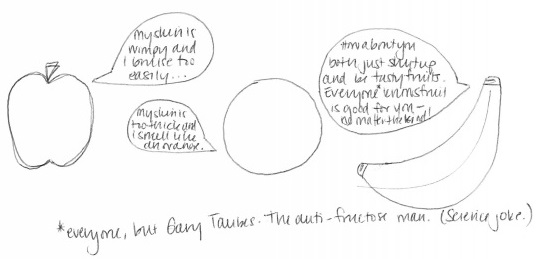I am a liberal feminist. I am one of the women to whom Matt Walsh’s recent open letter was addressed. And I’d love to respond. Not point-by-point, because I don’t think the letter deserves it. Rather by making one important point:
YES, Mr. Walsh. Liberal feminists, such as myself, AGREE WITH YOU.
Boys in our society do have it rough– very rough, in many ways. There is no question that boys are often inappropriately labeled with psychiatric or emotional disturbances, that they are more likely to successfully commit suicide, that they are more likely than women to transgress in ways that are legally unacceptable and subsequently end up incarcerated. All of those things are true and concerning and very worthy of attention.
But here’s the thing… Mr. Walsh seems to believe that by addressing any problem, real or perceived, in girls and young women, we somehow dismiss these very real problems that plague boys and young men.
I don’t think that’s the case. And I think what Mr. Walsh fails to realize is that this is not a competition. To recognize and address a problem that primarily affects women does not take anything away from folks focusing on recognizing and addressing a problem that primarily affects men.
I am a liberal feminist and I am intrigued by the “Ban Bossy” campaign. I read Lean In and I understand that it’s a call for awareness– to be aware that we may be calling young girls bossy when the word bossy isn’t warranted. Similarly, we may be calling young boys aggressive when the word aggressive isn’t warranted. My logic takes me from point A (ban bossy) to this point B (think about the words we use to describe personality traits in girls and boys). Mr. Walsh’s point B seems to be something very different.
I am a woman and I am a liberal feminist. I do not consider feminism a dirty word because I know that to be a feminist does not automatically make me anti-male (or anti any other gender in between, for that matter, because what is feminine vs. what is masculine is, truly, a comparison of the average in a way that doesn’t recognize what really may be more of a continuum… but that’s another point entirely).
I don’t know Mr. Walsh except to know that he is a passionate and articulate man. I surmise, based on his two most recent anti-ban bossy, anti-feminism blog posts, that he is mired in a state of comparison that’s not necessarily doing anyone any good.
I’ve talked about comparison before– I truly believe it to be the (square) root of all evil. (Remember that sweet math joke?) I’ve also talked about the notion of promoting what you love, rather than bashing what you hate. As conceited as this is going to sound, I think Mr. Walsh could be much more effective if he embraced these two principles.
By jumping to a place of comparison, Mr. Walsh assumes that to promote something good for girls and consequently women is to bash something good for boys and consequently men. To promote an ideal of leadership rather than bossiness in young girls, as well as in their male peers, is not an emasculating thing… because the point is not comparison. All of Mr. Walsh’s concerns about young men are not only valid, but important and timely. They are worthy of attention and of intervention. Especially as they point to systematic problems with our educational system and a lack of appropriate behavioral health services. But before I could even think rationally about the importance of those things, I had to suppress my anger about the bashing of other things I think are important. And that made the whole article hard to stomach. I imagine a lot of people, a lot of liberal feminists, won’t even note the important points he does make as a result of all the bashing.
I would suggest that instead of using his time and considerable talent to bash the tenets of feminism, Mr. Walsh instead focus on bringing awareness to the problems that are clearly plaguing young boys.
The title of Mr. Walsh’s recent post is this:
An open letter to liberal feminists: girls don’t have it any worse than boys
To Mr. Walsh, I say: or course not. But just because girls don’t have it any worse than boys doesn’t mean we don’t have issues that need to be addressed for the sake of the future of young girls. And just as many issues ought to be addressed for the sake of the future of young boys. It’s not about comparison. It’s about improvement and progress. For everyone. Regardless of gender.
Matt Walsh has a popular blog. He discusses controversial things and more often than not, he seems to be looking to get a rise out of someone. That’s fine, that’ll get you readers, it’ll get you shares, views, clicks, and likes. But will it make life better for anyone? Perhaps that’s not his point… but dang, he could do it. He knows his facts about ADHD and over-medication, about suicide and incarceration. That’s awesome– he should talk about that, do something about that.
I also believe that Sheryl Sandberg and her organization, Lean In, know about the psychological impact certain ideals can have on young women. And that’s what they’re talking about, what they’re doing something about.
Ain’t nothing wrong with that!

